The media focus at Parliament this week was on the impact of leadership (we gave it some attention ourselves), but the legislation told a different story. A story about the impact of a normal member of the public.
That anyone one of us can change the law.
Parliament told this story with two shining examples, and two different ways the public can push to change the law.
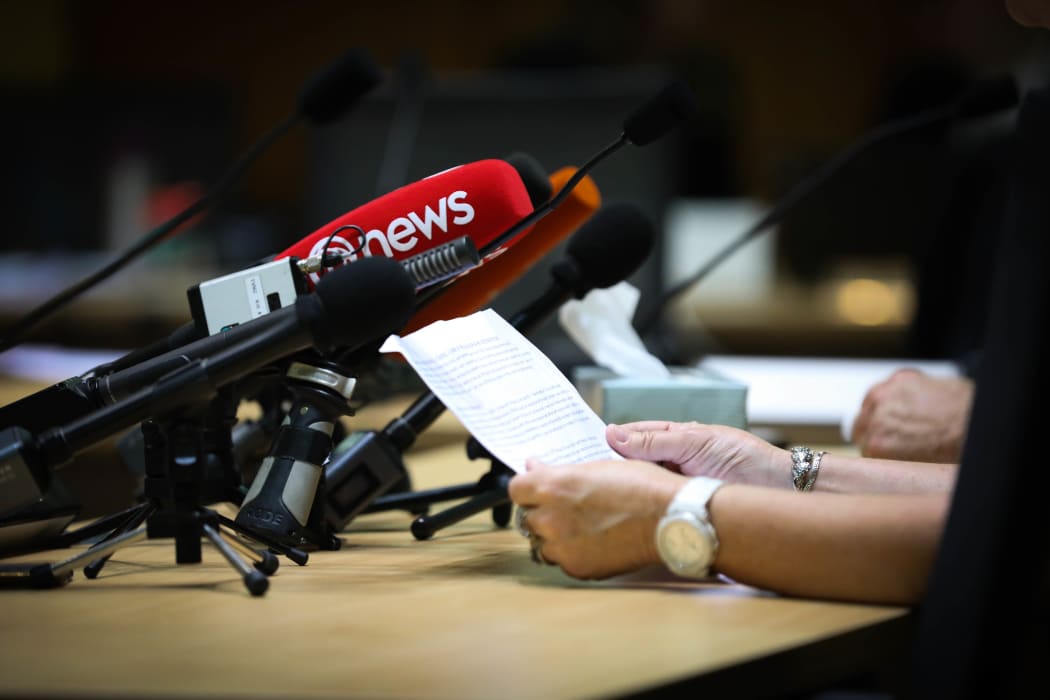
A submitter reads their written submission to a select committee and a lot of media microphones. Tissues on the table indicate the topic is sensitive. Photo: VNP / Daniela Maoate-Cox
The first example was on Wednesday when Parliament passed a member’s bill aimed at better outcomes for victims when a perpetrator is unable to stand trial on mental health grounds.
We told that story earlier in the week.
The member’s bill was championed by National MP Louise Upston because of an issue brought to her by a local voter. In her third reading speech Lousie Upston said:
“Today, I want to give confidence to every New Zealander that this is your House and, as MPs, we work for you. We work to make New Zealand a better place. You can meet with your MP, like Graeme did, and you can change the law.”
And on Thursday Parliament passed another bill – inspired by another member of the public. It’s like it was trying to push the “you can change the law” message home.
Thursday's law was the Births, Deaths, Marriages and Relationships Legislation Bill, which includes the ability for people to correct the gender on their birth certificate without requiring evidence of medical intervention or a court process.
Add a dash of fabulous
The 'births, deaths etc bill' had a boring name because it began as a pretty dull bill, aimed at a laudable but hardly earth-shattering modernisation of the hatch-match-dispatch bureaucracy. The Minister of Internal Affairs, Jan Tinetti, told the story in the House on Thursday.
“...this bill was probably seen to be a bit bland. But when it came back from select committee in August 2018, all hints of blandness had gone. …The then select committee had listened to the petition of Allyson Hamblett and agreed with the request that the government introduce a self-identification process for amending registered sex without the requirement for medical treatment and without the need for a court process.”
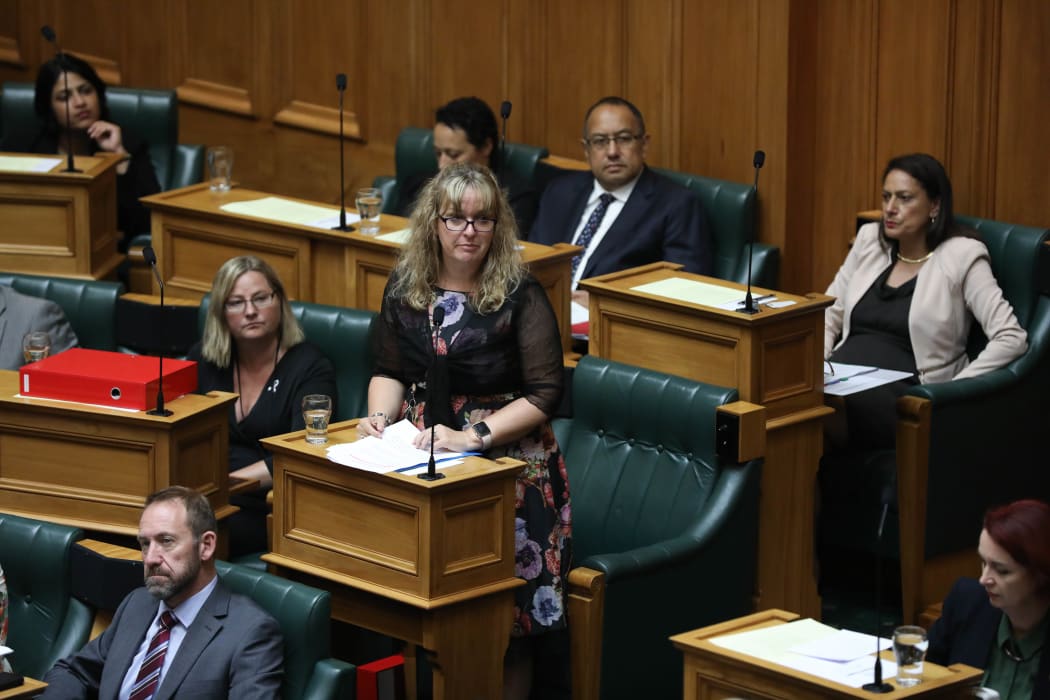
Labour MP Jan Tinetti in the House Photo: VNP / Daniela Maoate-Cox
Basically, Allyson Hamblett had turned up to the committee and said (to paraphrase wildly), ‘this bill is all very nice, but you’re missing a trick here. You could do something important and amazing'.
And the committee agreed. So, that was easy.
It actually took four more years to get it over the line, partly because (as I understand it) the then Minister of Internal Affairs Tracey Martin wasn’t able to convince her New Zealand First colleagues to get on board; and partly because it meant making a huge change to a bill that was already halfway to being law.
An extra process had to be jury-rigged to allow public input on the changes. Not easy, but the current minister Jan Tinetti made it happen with huge efforts from the Governance and Administration Committee (which considered 6900 submissions), and passed it with the unanimous agreement of Parliament.
So, submissions can change laws, and constituents can prompt local MPs to change laws. Petitions also have a history of changing laws. So many options.
The third reading
Third reading debates on major bills are frequently fascinating and this debate had the addition of also referencing the extra select commit enquiry on the proposed amendments.
Green MP Elizabeth Kerekere is not usually on that committee but gave a lot of time as an MP with a focus on takatāpui.
“This bill recognises that those who need to amend their birth certificate can do so, that the courts do not have the right to make that choice for them, that parents do not have that right, that cisgender people who don't even know them or care about them do not have that right. This bill upholds the mana, the wairua, the mauri of our takatāpui, trans, intersex, and non-binary whānau.”
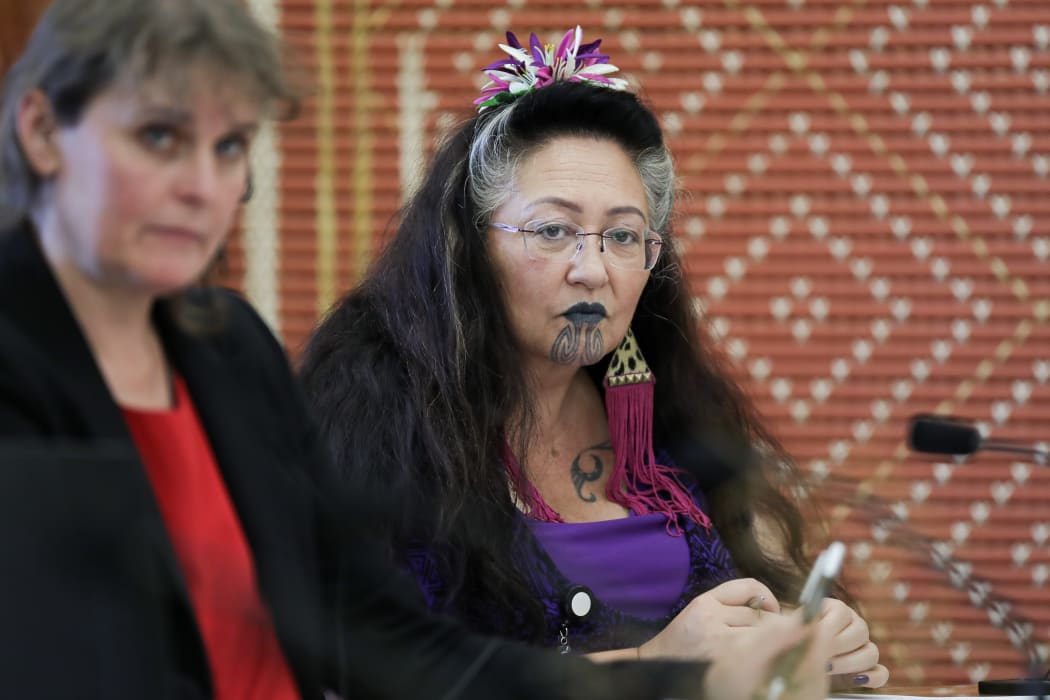
Green Party MP Elizabeth Kerekere in select committee Photo: ©VNP / Phil Smith
National’s Ian McKelvie (National) chaired the process.
“...it will have very little or no effect on me, but it will have a significant effect on so many people's lives. I think that's why we're here. If we can make a little bit of difference to someone's life and have no impact on other people's lives in the course of doing it, I think we should most certainly persevere with that.”
Also on the committee was Rachel Boyack from Labour.
“The message from this Parliament is that, for all of our rangitahi who are transgender and gender diverse, we see you. We acknowledge who you are, and this one's for you!”
An unachieved aim
During the debate MPs acknowledged that there is one group that they couldn't find an easy solution for - those born outside New Zealand. Here are Jan Tinetti and Rachel Boyack on that issue.
“There is one part that has come back today in this bill that does give me a little bit of disquiet, and that is that unfortunately today we don't have a solution for overseas-born people who live in New Zealand but want to change their birth certificate. The select committee worked hard to find the solution, but, unfortunately, we just couldn't get to that point, …However, the select committee did recommend that the government continue to work on finding a solution, and …I have already signalled to my officials that we need to continue work in this area, and targeted consultation on finding the solution will begin in 2022, and I am committed to that work.”
And Rachel Boyack (Labour):
“...it was disappointing for the committee that we were unable to reach a solution around people who were being born overseas. I just want to put on the public record that everyone who participated in the committee was committed — absolutely 100 percent committed — to seeking a solution to that particular issue, and we will work tirelessly to do that over the next few months.”
A review
This bill will undergo a mandatory review after five years. But National MP Nicola Grigg expects that to be uncontentious.
“My expectation is that as with other societal shifts and liberalisations in policy and law that we've seen in the past, the fears some hold that their freedoms will be removed and that they'll be affected and the rights they hold will be affected — I believe that as we've seen in the past, these fears will be unfounded. Our laws in this country need to reflect the times that we live in. And remembering this bill, all it is doing is modernising a process that is already in place. It was a dated Act of Parliament. This is a shift in the right direction.”
A point of disagreement on free speech
While the House voted unanimously in support of the bill there was one area where individual MPs had strong differences. Responses to the debate on the bill, particularly the level of rancour and whether some sorts of speech should be politely tolerated. It was National MP Nicola Grigg that first raised the issue in her speech:
“I have been concerned that during the passage of this bill, some groups who have wished to hold public meetings, public debate, in public venues have been blocked from doing so. This is wrong. It is a clear overreach by those venues in question. We can't have a situation in New Zealand where the views of others that might be disagreed with are somehow branded as harmful or dangerous or offensive. There is no right in this country to be offended by what other people think or what their opinions might be. If we shut down the full expression on topics such as this in this House, we won't benefit from considering a full range of views as we debate complex policy and ideas. I do worry about the societal impacts of people feeling that their views are no longer to be expressed. We really do need to draw a line in the sand on this censorious, restrictive direction of free speech in this country.”
(Just in case that quote puts you wrong, Nicola Grigg may have misspoken there. You certainly do have the right to be offended by other people’s opinions. What you do about that is more complex.)
Anyway, Nicola Grigg roused a response from a number of other MPs on the topic of the right to speech (and to disapproval of speech).
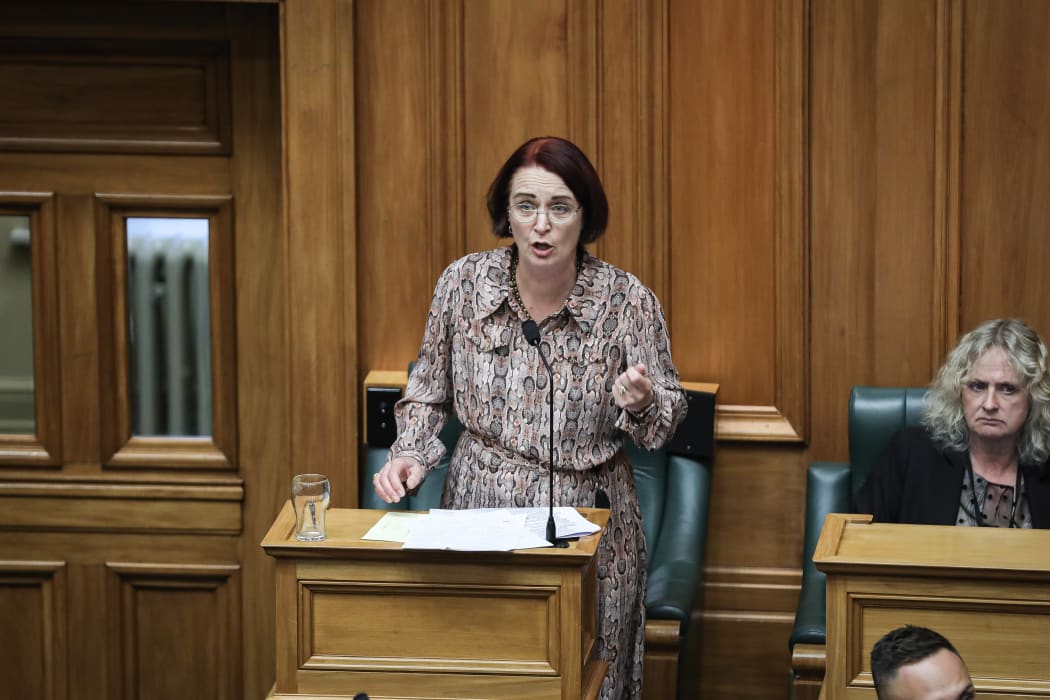
Labour MP Deborah Russell Photo: ©VNP / Phil Smith
Here’s Deborah Russell from Labour.
“The third thing I wish to address from what happened during the hearings was what I would simply call the language of hate. It was a language of hate that came through from people opposed to this bill. …a lot of the language we heard directed at trans people was language that we've heard directed against gay people. It is the language that treats people as non-people, as people who shouldn't be allowed to exist. And we were required to listen to it. But I do not think we are required to listen politely to it. As MPs, of course, we must listen to people who come to our select committees. But I will not listen politely to hate. I think it's important that we don't listen politely to hate. There were young trans people watching those hearings, and if we sat there and listened politely to hate, it would sound like we were endorsing that hate. So I say congratulations to the committee members who expressed their disapproval of the language of hate that came through so loudly.”
Elizabeth Kerekere (Green):
"The hearings were something else. We would have hoped that all submitters presented with accurate information and a genuine care for the humanity of all New Zealanders. Sadly, that was not the case and we acknowledge that many members of takatāpui, trans, intersex, and non-binary communities and your allies were infuriated and traumatised by the gas lighting, transphobia, and in particular transphobic misogyny that was expressed in those hearings. …But, channelling my Catholic mother, I hope that the complete and absolute failure of the anti-trans lobby provides them with an opportunity to sit down and really think about their behaviour.”
Glen Bennett (Labour):
“I had the privilege of being part of the select committee at different times and heard submissions — and we've heard this whole mention of freedom of speech and free speech, and that's OK when you have the power as the majority. That's OK when those around you are voiceless. But we do want to ensure that the freedoms of our Takatāpui, transgender, non-binary, and intersex community are free indeed.”
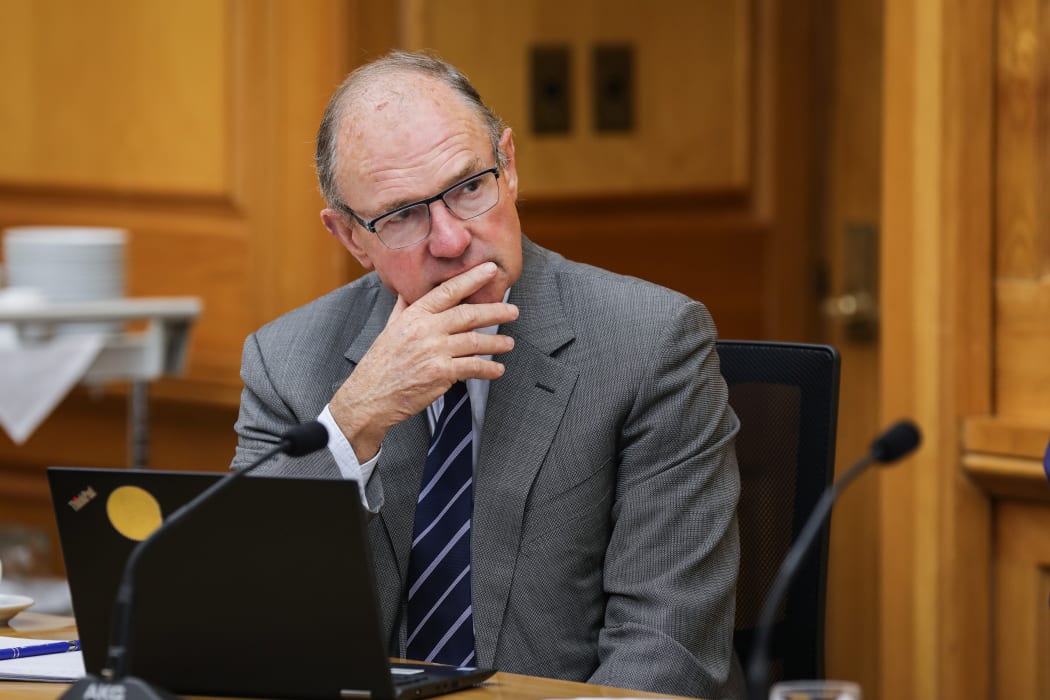
National MP Ian McKelvie listening to evidence in select committee Photo: ©VNP / Phil Smith
And National MP and committee chair Ian McKelvie:
“I was uncomfortable with the manner in which the live streaming of the select committee proceedings led to some submitters being very unfairly attacked on social media without either the will or in fact the ability to reply or any protection from Parliament. And if we're to continue to use live streaming and social media to get our proceedings out there, we're going to have to put suitable protections in place or we will lose the public's confidence and we will no longer have people willing to submit to Parliament, particularly on difficult pieces of legislation. I frankly don't believe people should be able to use social media to attack submitters they don't agree with, and therefore the only reasonable solution for us is to prevent comment via this medium in the future. I think that Parliament is going to have to consider that.”
The overarching story
Like the earlier story about Louise Upston’s member’s bill born from an issue raised by a constituent, the overarching story here I think is the power of the powerless individual to influence Parliament and change the law.
Labour MP Tangi Utikere was the last to speak.
“The Minister started by thanking the petitioner who initiated this particular change back in 2017; I want to conclude my contribution by doing the same. So thank you to Allyson Hamblett for engaging in the democratic process to bring about this change. It's actually proof that the act of petitioning the Parliament does make a difference, even if it can take some time to get there.”


